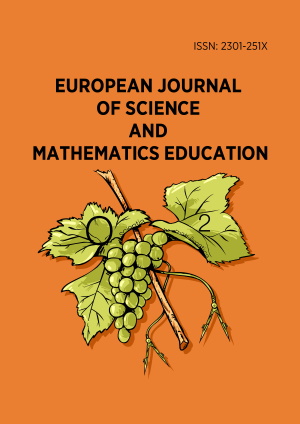Research Article
The interrelationship of science experiences, beliefs, attitudes, and self-efficacy: A case study of a pre-service teacher with positive science attitude and high science teaching self-efficacy
More Detail
1 Elementary Education, Penn State University Berks Campus, Reading/PA, U.S.A.* Corresponding Author
European Journal of Science and Mathematics Education, 1(3), October 2013, 106-124, https://doi.org/10.30935/scimath/9391
OPEN ACCESS 2793 Views 1734 Downloads
ABSTRACT
This qualitative case study aimed to focus on the experiences and subsequent science and science teaching beliefs, attitudes, and self-efficacy of an elementary pre-service teacher, Heather, with extremely positive attitude and high self-efficacy. For this particular population of pre-service teachers, possessing a high science teaching self-efficacy alone is not sufficient to assume reform-based beliefs and teaching practices. This study was unique in that it concurrently explored the relationship between attitude, beliefs, and self-efficacy before and after the course. Initially, Heather’s attitude and self-efficacy with respect to science and science teaching were closely interrelated and a product of her own intrinsic interest in science and her unique K-12 experiences. Her beliefs appeared to have been shaped by both her actual science experiences and what she had witnessed in the classrooms. Heather’s course experiences shaped her post beliefs about science and science teaching, which consequently altered her attitude and confidence.
CITATION (APA)
Kazempour, M. (2013). The interrelationship of science experiences, beliefs, attitudes, and self-efficacy: A case study of a pre-service teacher with positive science attitude and high science teaching self-efficacy. European Journal of Science and Mathematics Education, 1(3), 106-124. https://doi.org/10.30935/scimath/9391


 The articles published in this journal are licensed under the CC-BY Creative Commons Attribution International License.
The articles published in this journal are licensed under the CC-BY Creative Commons Attribution International License.